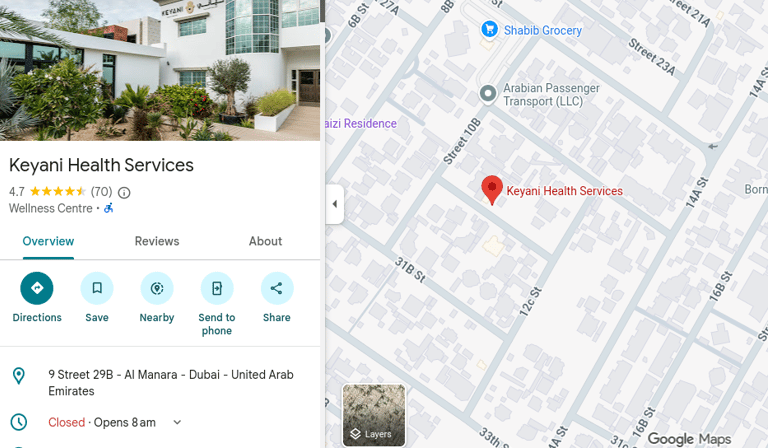Therapies
Explore our diverse therapeutic services.
CBT
CBT is a practical, goal-focused therapy that helps you manage challenges by changing unhelpful thoughts and behaviours. It focuses on present issues and teaches you healthier coping skills by breaking problems into manageable parts.
CBT can help with:
Depression, anxiety, phobias, PTSD, OCD, bipolar disorder
Anger, sadness, stress, jealousy
Insomnia, chronic pain
Addictions and eating disorders
Suitable for all ages, CBT can be done individually or in group sessions and may be combined with other treatments when needed.
REBT - Rational Emotive Behavior Therapy
Supportive Psychotherapy for Grief provides professional support to help individuals understand and cope with feelings of loss.
Safe Space: Discuss the impact of a loved one’s passing in a supportive environment.
Emotional Exploration: Understand and navigate the complex emotions grief can bring.
Coping Strategies: Learn practical tools to manage intense feelings and build resilience.
Resources: Access support groups, crisis helplines, and other helpful resources.
This therapy does not aim to “fix” your grief, but to help you live with it and gradually find a new sense of normalcy.
Supportive Psychotherapy for Grief
Person-centred therapy is a humanistic, non-directive approach where the client leads the session. The therapist provides empathy, non-judgmental acceptance, and authenticity to create a safe, supportive space.
This therapy promotes self-discovery, self-acceptance, and personal growth, helping individuals move toward greater self-awareness and self-actualization.
PCT - Person-Centered Therapy
CBT
Developed by Albert Ellis, REBT focuses on identifying and changing irrational thoughts and beliefs that cause emotional and behavioral discomfort
Action-Oriented Approach: Helps clients recognize, challenge, and replace unhealthy thought patterns.
Clear Understanding: Distinguishes between events, beliefs about events, and resulting emotions and behaviors.
Challenging Beliefs: Addresses rigid, extreme, and illogical beliefs that conflict with reality.
Rational Thinking: Encourages replacing irrational beliefs with logical, flexible, and reality-based ones.
Self & Life Acceptance: Promotes unconditional acceptance of oneself and life situations.
REBT provides practical strategies to reduce self-defeating thoughts and behaviors while fostering a more rational and balanced mindset.
ACT helps individuals build psychological flexibility by accepting difficult thoughts and feelings while taking purposeful action aligned with their values.
Mindfulness & Acceptance: Learn to experience thoughts and emotions without judgment.
Value-Driven Action: Identify core values and commit to actions that reflect them.
Thought Awareness: Understand that thoughts are temporary and not absolute truths.
Behavior Change: Combine acceptance with practical strategies to create meaningful change.
Common Uses: Effective for anxiety, depression, chronic pain, and trauma.
ACT empowers clients to live a values-focused life, even in the presence of challenging emotions.
Psychoanalytic Therapy
ACT- Acceptance and Commitment Therapy
Psychoanalytic Therapy, based on the work of Sigmund Freud, helps individuals explore how unconscious desires, past experiences, and childhood events shape their current thoughts, feelings, and relationships.
Increase Self-Awareness: Understand the hidden influences on emotions and behavior.
Uncover the Unconscious: Bring unconscious thoughts and feelings into conscious awareness.
Insight & Interpretation: Therapists analyze thoughts, behaviors, and dreams to reveal underlying patterns.
Deep-Rooted Change: Resolve long-standing emotional and relationship issues.
Common Uses: Effective for depression, anxiety, relationship challenges, and personality disorders.
This therapy fosters lasting self-understanding and emotional growth.
Neurofeedback Therapy
Neurofeedback is a non-invasive therapy that trains the brain to function more efficiently using real-time feedback on its electrical activity.
Brain Training: Sensors measure brain waves, and a computer provides visual or auditory rewards for desired patterns.
Self-Regulation: Encourages the brain to learn and maintain healthy activity patterns.
Conditions Treated: Commonly used for ADHD, anxiety, depression, and insomnia.
Neurofeedback helps improve focus, emotional regulation, and overall brain performance.
FAQ
What is therapy?
Therapy (also called talk therapy) refers to a variety of treatments that aim to help an individual identify and change troubling emotions, thoughts, and behaviors. Most psychotherapy takes place one-on-one with a licensed mental health professional in a confidential manner.
How long are sessions?
Who can benefit?
Yes, therapy is strictly confidential.
Anyone can benefit from therapy, but it is particularly helpful for those dealing with major life changes, persistent emotional distress, relationship problems, or having gone through any form of trauma. For example, if you have changes in your sleep pattern, appetite, feeling overwhelmed, persistent sadness, social withdrawal, and difficulty coping with stress. Therapy is also for anyone seeking personal growth or a better understanding of self.
Sessions typically last 45 minutes to 90 minutes
Is therapy confidential?
Anxiety and related issues
Stress management
Depression and low motivation
Relationship issues
Phobias and fears
Therapies are offered for the following conditions
Anxiety and related issues
Stress management
Depression and low motivation
Relationship issues
Phobias and fears
Anxiety and related issues
Stress management
Depression and low motivation
Relationship issues
Phobias and fears
Happiness is the only thing that multiplies when you share it.”
– Albert Schweitzer
“It is not primarily our physical selves that limit us but rather our mindset about our physical limits.”
– Ellen J. Langer
"Mistakes are the inroads to our intelligence and empowerment."
– Anonymous
"Laughter releases toxins from our body, so do tears."
– Anonymous
Most of the choices we make each day may feel like the products of well-considered decision making, but they’re not. They’re habits"
- Charles Duhigg


